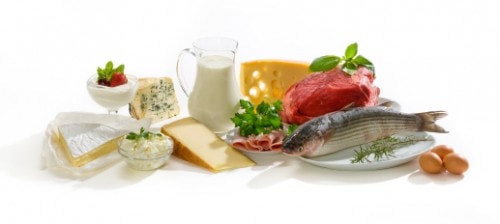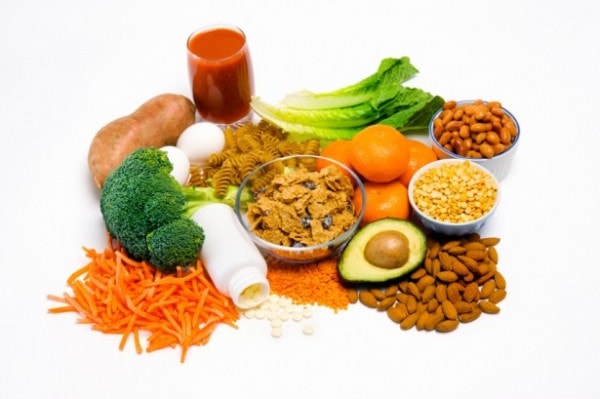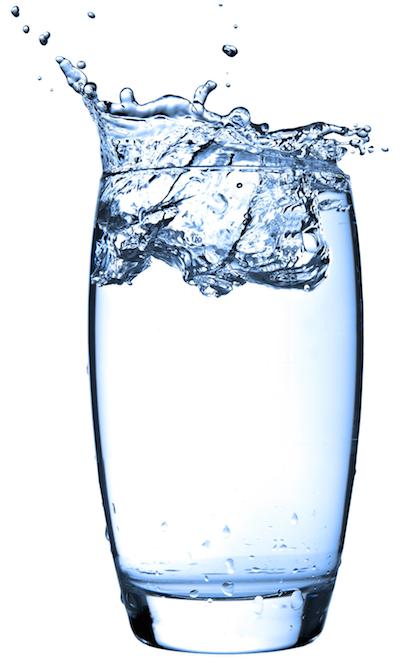Introducing Lindsey Baudoin to the Baby FoodE Team – Pregnancy and Nutrition, What’s Important
Please help me welcome our newest contributor to Baby FoodE – Lindsey Baudoin! Lindsey and I have been friends since we met at a Natural Childbirth class before our first kiddos were born. Now we are both on baby number 2 and we continue to get together on a regular basis to gab about how crazy our little ones are, our love for mommy beverages [and how being pregnant really dampers our consumption of fun summer cocktails], exercising while having kids and of course our love of food.
As much as I love Lindsey, she is one of those very annoying mamas that loses all of her baby weight before she even steps out of the hospital door and because of this I have gone to her on numerous occasions for fitness, health and nutrition advice. It turns out, Lindsey knows her stuff, she has a Bachelor’s in Exercise Science and a Masters in Health Education from the University of Kansas and is also a certified Health Coach through the American Council on Exercise. So when I finally thought about it, I realized Lindsey would be the perfect person to help with the Mama FoodE section of this blog. She has agreed [yay!!!] to write a couple posts a month on food, fitness, health and nutrition for pre and post natal mamas!
As Lindsey gets started, if there is anything you want to learn more about, a topic you think would help you with your pregnancy or anything else you are curious about, drop us a line and let us know. We are always looking for new and exciting posts that interest you!
There’s so much information out there on the internet about pregnancy and nutrition, so I’m here to comb through some of that information and give you the basics to a healthy pregnancy through nutrition.
If you’ve never really paid too much attention to what you consume or how well you take care of yourself, now is the time to start. I have been pregnant twice and each time I’ve bounced back very quickly after having my babies. I attribute this, first and foremost, to taking good care of myself through what I put into my body. The following are three of my essentials for having a healthy pregnancy.
Protein
There are many reasons why you should get in adequate amounts of protein while pregnant. For starters, protein helps with those suffering from morning sickness in the first trimester. When I was pregnant with my son in the first trimester I had severe aversions to two of my fast and easy protein sources (yogurt and eggs), so I understand it can be difficult to get protein in the early stages of your pregnancy because of nausea and aversions. I had to get creative. I really loved eating turkey sandwiches, so I made sure to buy sliced turkey from reputable sources such as Whole Foods or Sprouts or any other natural grocers that were in our area. Because I didn’t have an aversion to most meats, I could also eat things like beef and chicken with no problem. With my second pregnancy it was a bit harder to get in protein because nothing sounded good at all. I lost weight and felt horrible. Thankfully I still enjoyed eating cheese, which is a good source of protein, along side crackers and apples. I lived off of those items for about 6 weeks. You have to do what works for you though. You may need to experiment with things that sound good to you and get creative.
In the second and third trimesters the amino acids help build and develop your grow fetus. Whether you’re a vegan, vegetarian or an omnivore, protein is fairly simple to add into your daily diet. Pregnant women need about 70 g of protein a day where as non pregnant women need about 45 g of protein a day. You should try to get in a protein at every meal.
Here are some foods that are good sources of protein:
Dairy
- 1/2 cup 1% cottage cheese: 14 g
- 1/2 cup part-skim ricotta cheese: 14 g
- 8 ounce container low-fat yogurt: 9 to 12 g
- 1 container (170 g) plain Greek yogurt: 17 g
- 1 ounce Parmesan cheese: 11 g
- 1 ounce Swiss cheese: 8 g
- 1 cup skim milk: 8 g
- 1 ounce part-skim mozzarella cheese: 7 g
- 1 ounce cheddar cheese: 7 g
- 1 large fresh egg: 6 g
Beans, nuts, legumes
- 1/2 cup raw tofu (firm): 20 g
- 1 cup cooked lentils: 18 g
- 1 cup canned black beans: 15 g
- 1 cup canned kidney beans: 13 g
- 1 cup canned garbanzos: 12 g
- 1 cup canned pinto beans: 12 g
- 2 tablespoons smooth peanut butter: 8 g
- 1 ounce dry roasted peanuts: 7 g
- 1 cup light plain soymilk: 6 g
Meat, poultry and fish
Note that 3 ounces of meat or fish is about the size of a pack of cards.
- 1/2 roasted chicken breast (no skin): 27 g
- 3 ounces sockeye salmon: 23 g
- 3 ounces trout: 23 g
- 3 ounce lean beef hamburger patty, broiled: 21 g
Folic Acid
First and foremost the second you find out you’re pregnant you need to make sure you’re taking in enough folic acid. Folic acid is an important part of a healthy pregnancy because it reduces the likely hood of having a baby with neural tube defects. You can obtain your daily needs by either ingesting it in pill form (it’s easy to find these at any health food store or grocery market in the vitamin section) or, if pills aren’t your thing, you can obtain your daily dose through foods. Although this takes much more thought and is a bit more difficult to receive all your folic acid this way, it is the more natural way of doing it. When looking on food labels for the amount of folic acid offered, you should look for the word “folate”. The recommendation for pregnant women is 400-800 mcg a day. Personally, I ingested my folic acid requirements through the pill form because the body doesn’t absorb the natural folic acid form (folate) as well as the man made form. If you are going the natural route here are some great sources to get your folate.
– Organic fortified cereals (Some have 100% of the daily value of folic acid in each serving)
-Organic spinach (and leafy greens)
-Broccoli
-Nuts (almonds, hazel nuts, walnuts, peanuts)
-Organic orange juice
-Avocados
-Sweet potatoes
-Legumes
-Egg yolks
-Organic Flours
-Breads
-Pastas
-Cornmeal
-Whole grain brown rice or enriched white rice
Water
Taking in enough water was a tough one for me during my pregnancies. I’m not satisfied with water unless I’m very thirsty and I don’t get thirsty unless it’s right after a workout. I did workout everyday during both of my pregnancies but I wasn’t working out all day so water really wasn’t a top priority for me. I did learn a thing or two though after my first pregnancy about how crucial water is for pregnant women.
The current recommendations for pregnant women are to drink eight, eight to twelve ounce glasses of water a day. During your first trimester, especially, it’s easy to become constipated for days on end. You can thank your fluctuating and changing hormone levels for this. Water won’t take away all of the constipation you will experience but it will most definitely help. Water helps dissolve waste products and flush them out of the kidneys. Water softens and pushes solid foods through the intestines which eases constipation. Drinking water also alleviates bloating that every women is sure to have at least once in a while during pregnancy. Water retention can be felt in the extremities and can be uncomfortable, especially at the end of the day with swollen ankles. By drinking ample amounts of water, your body can better flush this extra fluid out of your system and keep bloating to a minimum.
Drinking plenty of water throughout pregnancy also contributes to high levels of amniotic fluid. High levels of amniotic fluid are essential for your growing baby. Too low of levels may send women into early labor or may be cause for concern because baby may not be doing too well which in turn, could ensure an early delivery per your doctor’s orders.
When it comes to delivery, making sure you are extra hydrated is very important as it helps with the pushing stages of labor and also helps reduce the risk of dehydration during labor. When I was in labor with my first pregnancy, I became extremely dehydrated because I wasn’t consuming enough liquids during the last stage of labor (or any stage of pregnancy for that matter!). I had to be hooked up to a saline drip and therefore I couldn’t leave my bed or really move into many positions other than being on my back for the pushing stage. With my second pregnancy I was able to move about freely and the baby came out easier because, in part, I was well hydrated and consumed water throughout the labor process. I was never in danger of becoming dehydrated the second time around.
If water just isn’t your thing, or you are like me and have a tough time consuming it, there are alternatives. My favorite drink during pregnancy was seltzer water. I loved (and still do!) love the La Croix brand grapefruit flavored seltzer water. You can also add a splash of your favorite juice to seltzer water to give it a kick. Put it in a fancy wine glass to help make you feel like you’re doing something naughty 😉 If you do choose to drink juice just make sure that they are 100% fruit juice. Coconut water is also an excellent choice when trying to hydrate. The key is just to keep the fluids coming throughout your pregnancy.
These are just a few of my suggestions which I think top the list for having a healthy pregnancy. I hope you gained some knowledge and have or continue to have a healthy pregnancy. Keep up the good work and good luck!




